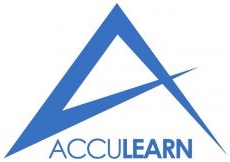Introduction
The demands of a competitive business environment, the emergence of a more transformative approach to leadership and the emphasis placed on employee empowerment and accountability, have all resulted in the growth in the use of coaching, mentoring and other career development activities in workplaces worldwide. An effective coaching, mentoring and career development process will include a range of techniques from communication skills, counselling techniques, human psychological processes and an understanding of human development.
We often hear record-breaking athletes say; I owe it to my coach; that’s because however talented they are, athletes need a coach to improve their performance and competitiveness. Likewise, Companies and Organisations need to create a culture where coaching and feedback occur as a routine part of each day towards this strategic end.
This training course will feature:
- Foundation Coach
- Coach Skills
- Power Tools
- Coaching Presence
- Frameworks & Models
- Coach Profile Audit
- Coaching Model
- Coaching Niche
- Business Development
- Coach Development
- Coaching Labs
- Mentor Coaching
- Observed Coaching
- Coach Supervision
- Design and develop comprehensive and customised solutions for employee development
- Explore best practices in coaching, mentoring and career development
- Design Coaching as an essential skill for leadership success
- Ensure productive and engaged employees that sustain organisational success
- Being less of a boss and more of a coach is fundamental to modern management
- Urging people to do better won’t work unless they know how to do it better
- Good coaching builds trust and collaborative climate between professional and team
- The process involves breaking tasks down to their component parts, helping people to improve performance in each element and enabling them to pull these elements together to achieve the desired effect
Objectives:
- Coaching and equipping, is one of the most important acts of leadership
- Successful managers recognise that to get things done cost effectively they must ‘grow’ people to their full potential
- Outstanding performance must be drawn from every member of the team
- This requires clear direction, feedback and personal empowerment
- y the end of this training course, participants will be able to:
- Demonstrate effective coaching skills
- Utilise modern coaching and mentoring techniques in the workplace
- Apply motivational coaching techniques
- Plan and structure coaching and mentoring plans for individuals
- Develop career plans suitable for use in an organisational context
- Design and develop comprehensive solutions aligned for organisational success
Course Contents
Co-creating the Relationship
- Establishing Trust and Intimacy with the Client
- Coaching Presence
Communicating Effectively
- Active Listening
- Powerful Questioning
- Direct Communication
Facilitating Learning and Results
- Creating Awareness
- Designing Actions
- Planning and Goal Setting
- Managing Progress and Accountability
The Coaching Foundation
- Types of Workplace Coaching
- Distinguishing between coaching, mentoring and counselling
- Key coaching skills for effective performance
- Assessing coaching skills
- Meeting ethical guidelines and professional standards
- Introducing Coaching Models – PEDICR & GROW
Advanced Communication Skills for Coaching & Mentoring
- Understanding self & others – personal communication styles
- Importance of Active listening
- SOLER Model for Active Listening
- Effective questioning techniques
- Language – verbal and non-verbal
- Consolidation – Conducting a coaching session
Mentoring Techniques & Practices
- Objectives and benefits of mentoring
- Corporate mentorship programs
- Most commonly used techniques among mentors
- Mentoring relationships: formal and informal
- Pitfalls to be avoided for effective Mentoring
- Consolidation – Conducting a Mentoring session
Learning and Development Principles
- Understanding human development and learning
- The 70:20:10 Model
- Learning Styles – Honey & Mumford
- Best practices in career development
- Developing your career SWOT
- Career planning & Talent Management
Enabling Organisations for Effective Performance
- Common workplace issues
- Developing workplace counselling programs (EAPs)
- Managing Workplace Conflict
- Coaching to address and reduce conflict
- Assessing Organisational Readiness for sustainability
- Personal Action Planning
Strategic Equipping For Leadership
- Changing Manager’s roles
- What is real Leadership?
- How to equip Leaders for excellence
- The pursuit of excellence
- Developing key management competencies to create excellence
- 12 Ways to develop your Staff potential and talent
- The Manager as a Change agent
- The need for peak performance
The Manager as a Coach and Mentor
- What is coaching?
- Why is coaching so important?
- Making the transition from Manager to Coach
- Qualities and attributes of a good Coach
- Develop the Coaching Model
- What does coaching achieve?
- Deciding When and How to coach
- Select the appropriate coaching style
- Arranging a coaching session
- Use the “GROW” model
- Measuring and observing performance
The Coaching / Motivation Process and Skills
- Influencing the readiness to change
- The importance of handling change
- Gaining a person’s commitment to change
- Raising their effectiveness through questioning
- Motivation as a lever
- Setting action orientated performance goals
- End goals, performance goals and process goals
- Working your own goal setting strategy
- Developing efficient Time management
- Learn to prioritize your time
- Creating an action plan



